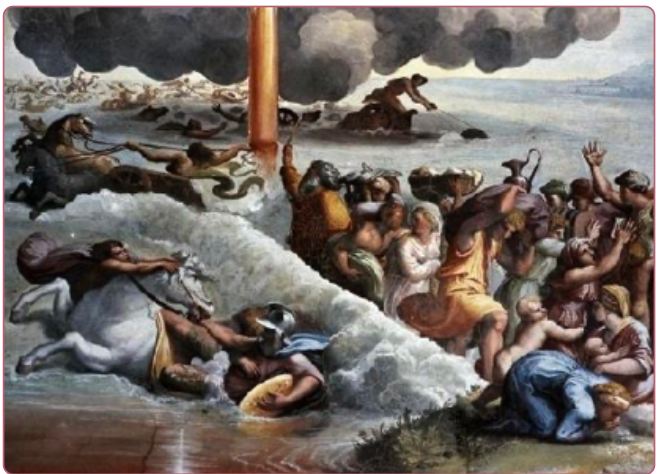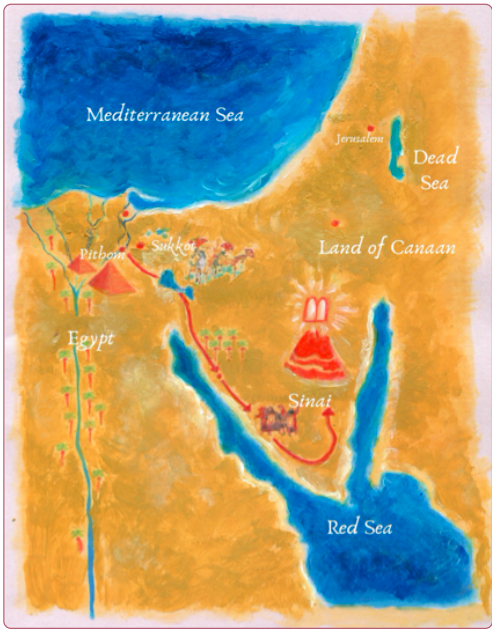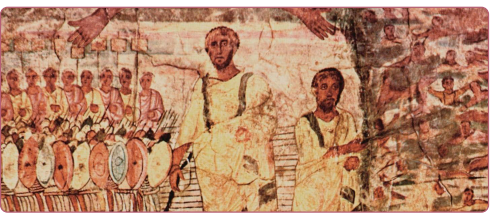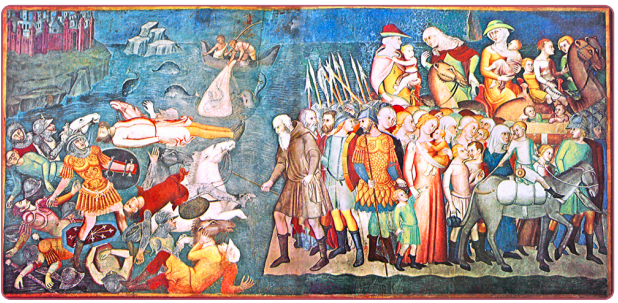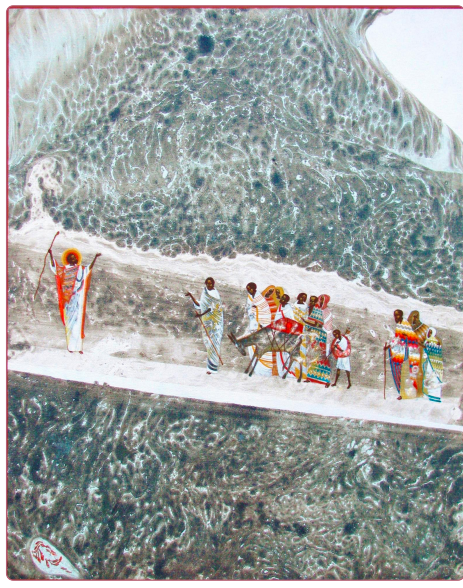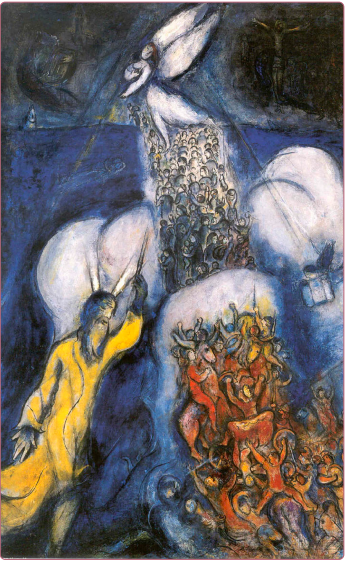2.3 What I need to know in order to study the Bible story
2.3.1 Historical and social context
Check the following information, along with the map (see 3.3) and the summary table (3.2) with the protagonists, events and dates.
 The story of the crossing of the Red Sea* can be found in the book of Exodus * in the Old Testament*. This book includes the events that
took place around the 13th century BCE and reveal God’s intervention in
history with the aim of liberating the Israelites from the Egyptians and
leading them to the land of Canaan*. The Israelites lived in Egypt from
1600 to 1200 BCE, for approximately 400 years. When Ramses II* became
Pharaoh (1290–1224 BCE), he took strict measures against them, fearing
they would ally with other peoples of the desert and revolt against him. One
such measure was the killing of Jewish male children to limit their number.
Moses* was born at that time, and was miraculously saved from death.
He
was chosen by God to liberate the Israelites and lead them to the land of
Canaan
*.
The story of the crossing of the Red Sea* can be found in the book of Exodus * in the Old Testament*. This book includes the events that
took place around the 13th century BCE and reveal God’s intervention in
history with the aim of liberating the Israelites from the Egyptians and
leading them to the land of Canaan*. The Israelites lived in Egypt from
1600 to 1200 BCE, for approximately 400 years. When Ramses II* became
Pharaoh (1290–1224 BCE), he took strict measures against them, fearing
they would ally with other peoples of the desert and revolt against him. One
such measure was the killing of Jewish male children to limit their number.
Moses* was born at that time, and was miraculously saved from death.
He
was chosen by God to liberate the Israelites and lead them to the land of
Canaan
*.
 On their way to the land of Canaan*, the Israelites did not follow the
shorter, coastal route. Instead, in order to avoid the Egyptian guards,
they headed south to the Red Sea*. Pharaoh at that time was Merneptah*
(1224–1204 BCE), the successor of Ramses II*. With his army, Merneptah*
pursued the Israelites as far as the sea, but he could not prevent them from
fleeing, because God opened a passage for them through the sea. Marching
through the sea, they were able to proceed to the desert and were saved.
In commemoration of this important event, Israelites celebrate
“Pesach*”
(=passage) even today, as the crossing of the Red Sea* marked their
passage from slavery in Egypt to freedom.
On their way to the land of Canaan*, the Israelites did not follow the
shorter, coastal route. Instead, in order to avoid the Egyptian guards,
they headed south to the Red Sea*. Pharaoh at that time was Merneptah*
(1224–1204 BCE), the successor of Ramses II*. With his army, Merneptah*
pursued the Israelites as far as the sea, but he could not prevent them from
fleeing, because God opened a passage for them through the sea. Marching
through the sea, they were able to proceed to the desert and were saved.
In commemoration of this important event, Israelites celebrate
“Pesach*”
(=passage) even today, as the crossing of the Red Sea* marked their
passage from slavery in Egypt to freedom.
 During this period, God makes a Covenant, i.e. a Testament * with His
people and at the same time protects them, supports them, cares for
them, strengthens and guides them. On the other hand, the people relate to
him, trust him and recognize him as unique and omnipotent.
During this period, God makes a Covenant, i.e. a Testament * with His
people and at the same time protects them, supports them, cares for
them, strengthens and guides them. On the other hand, the people relate to
him, trust him and recognize him as unique and omnipotent.
Protagonists
Event
Dates
Ramses II
Egyptian Pharaoh who took strict measures against the Israelites, fearing they could ally with peoples of the desert and revolt against the Egyptians.
1290–1224 BCE
Moses
Leader of the Israelites who led them to liberation from the Egyptians.
1393–1273 BCE
Merneptah
Egyptian Pharaoh. Son and successor of Ramses II. Pursued the Israelites with his army as far as the sea, but was unable to prevent their escape
1224–1204 BCE
